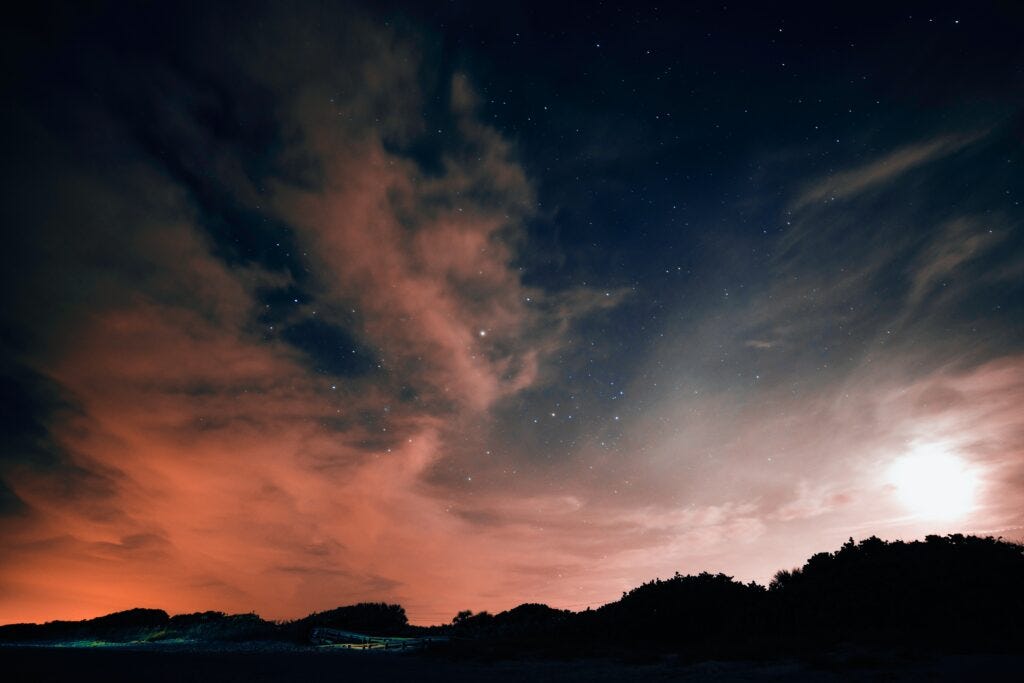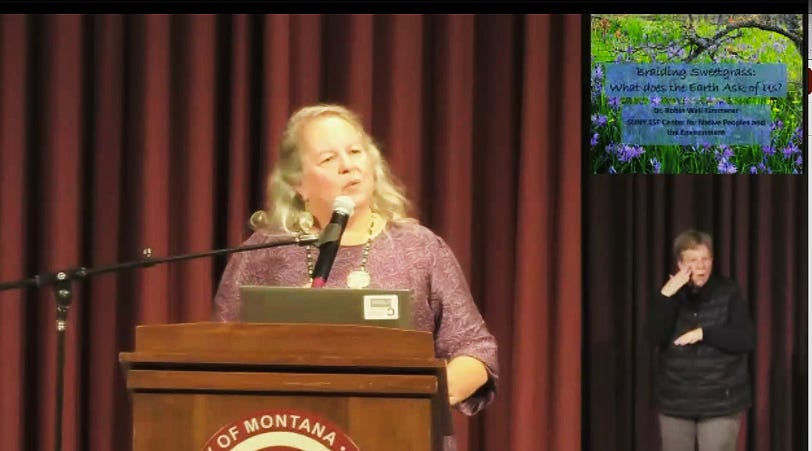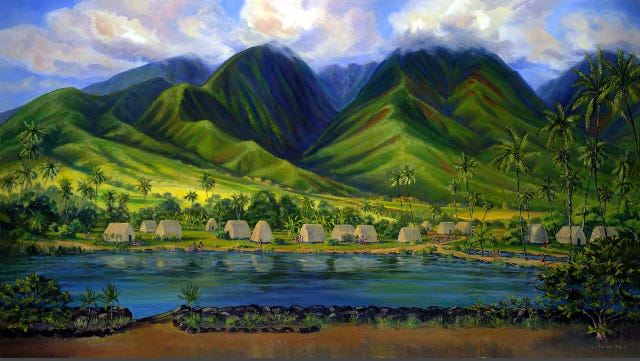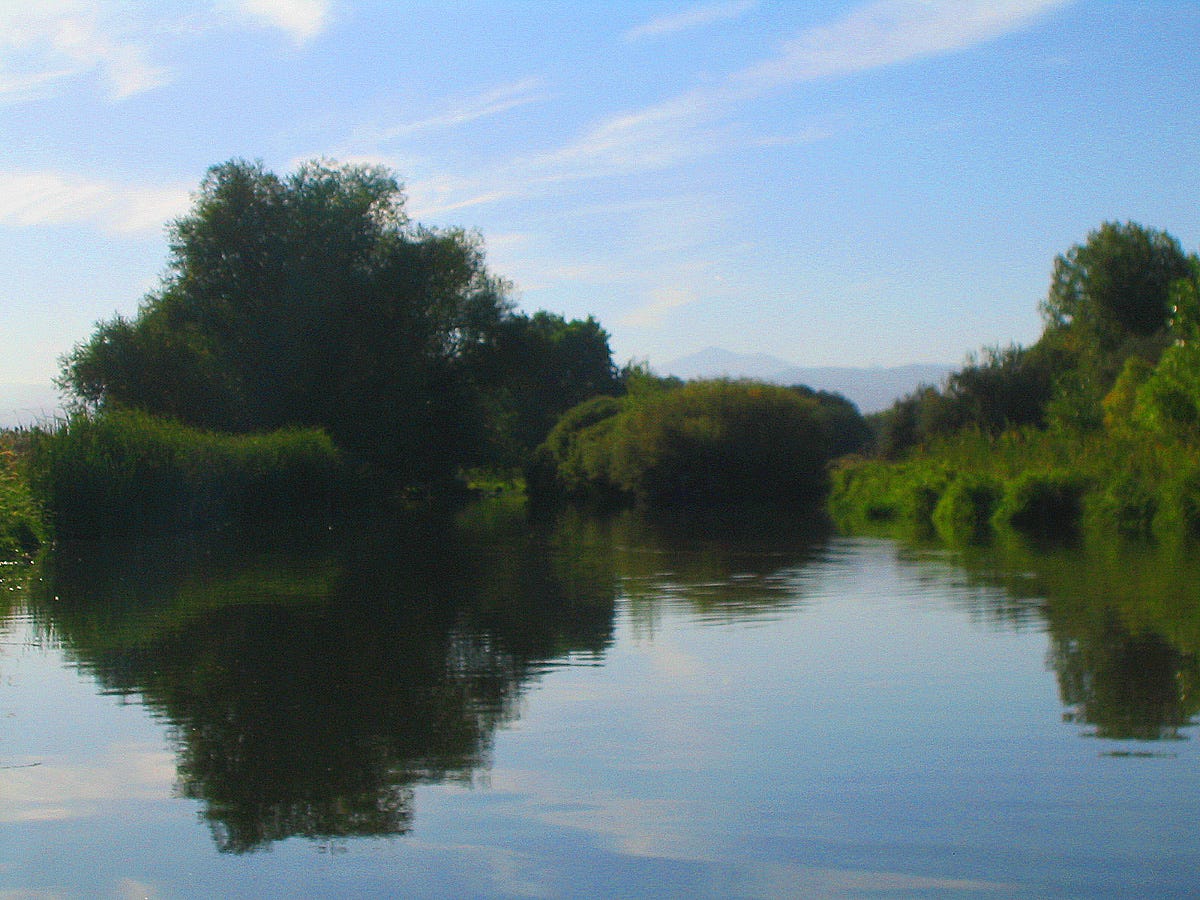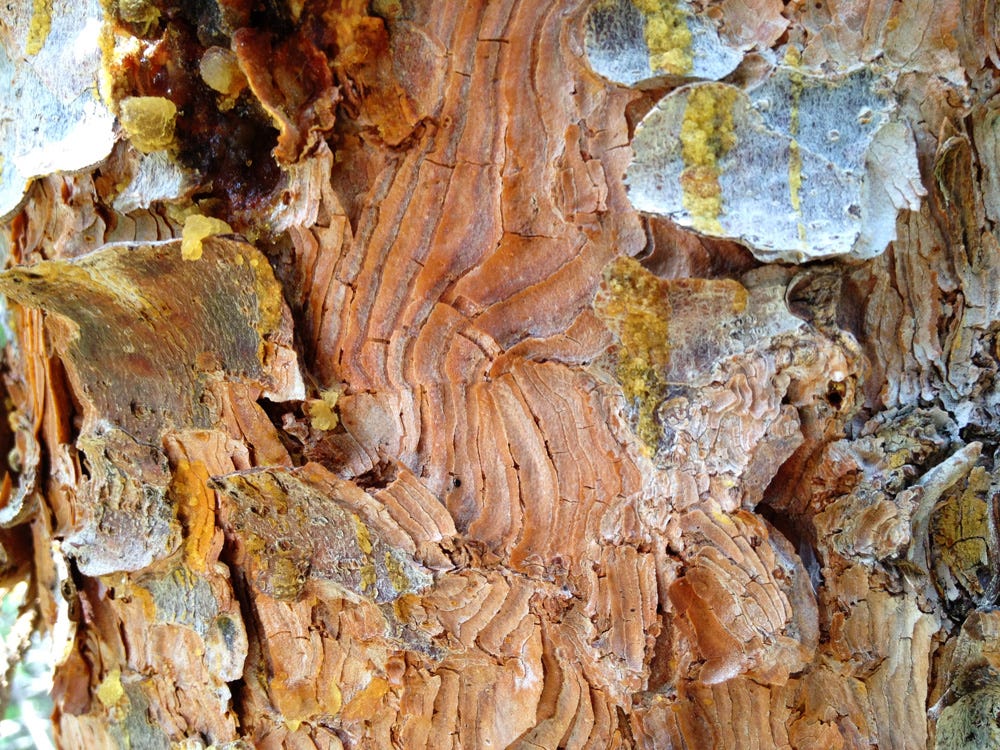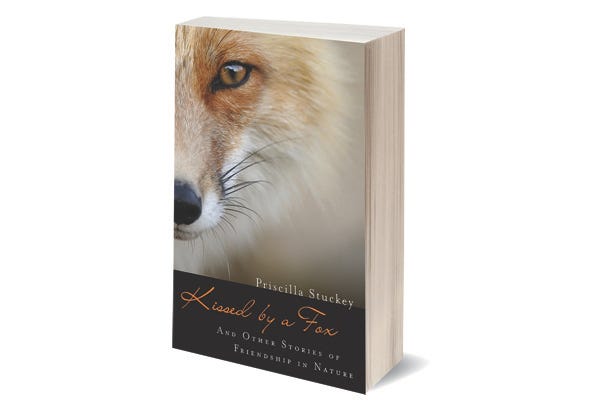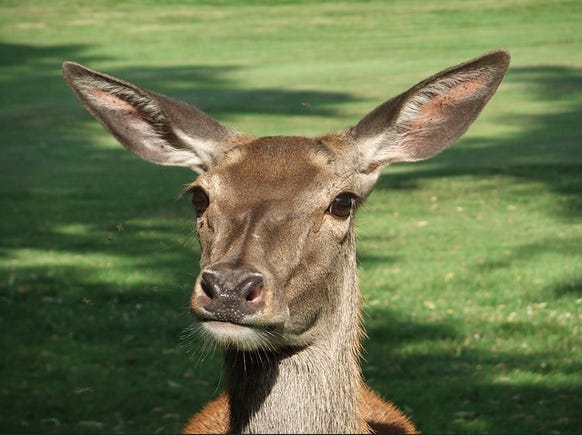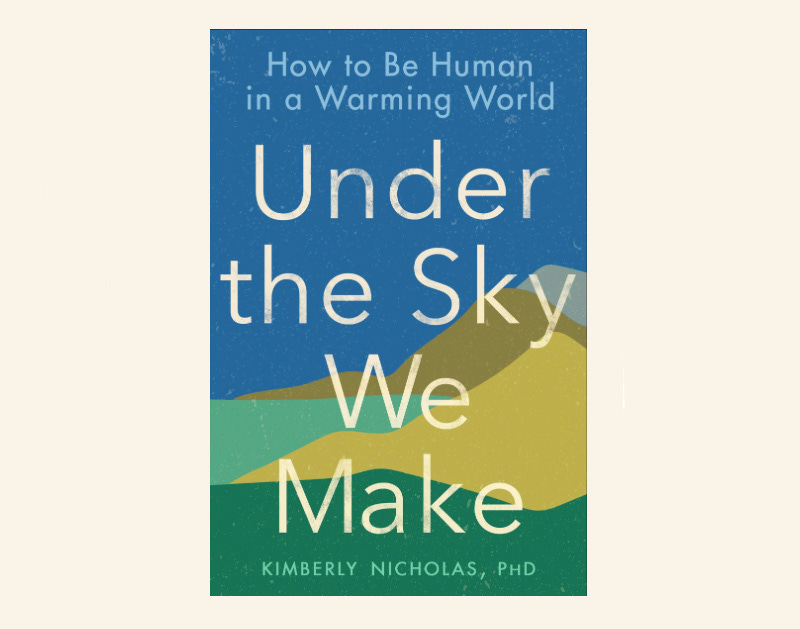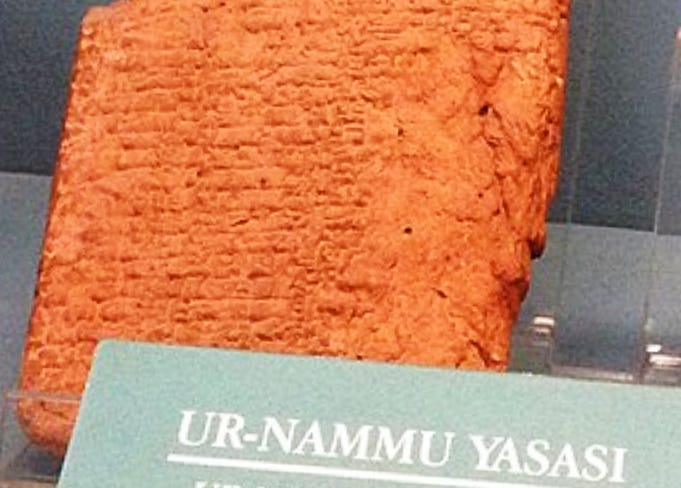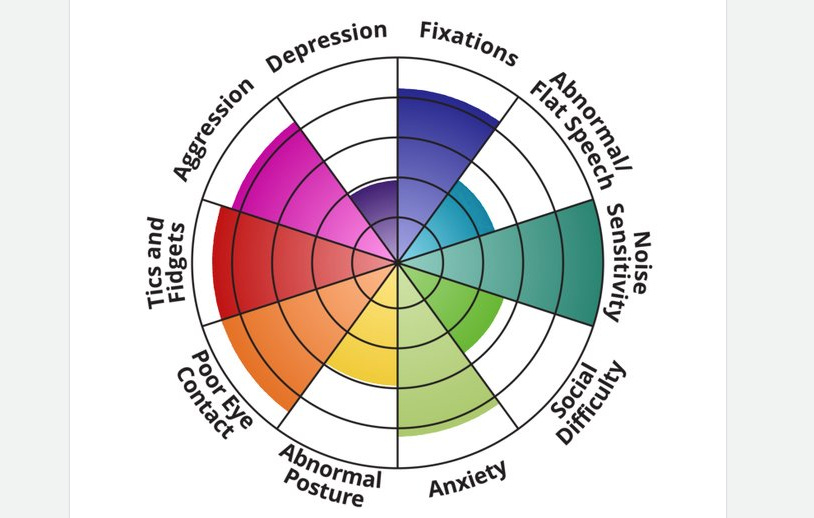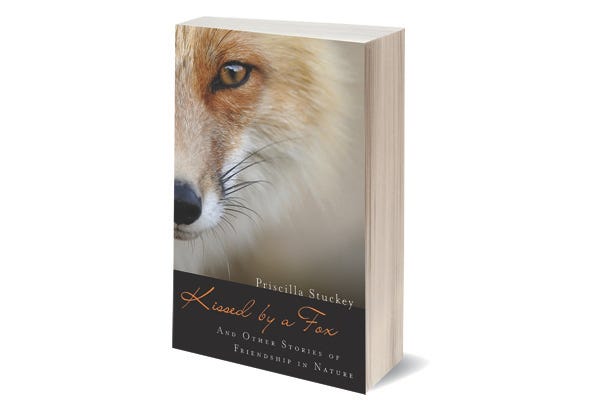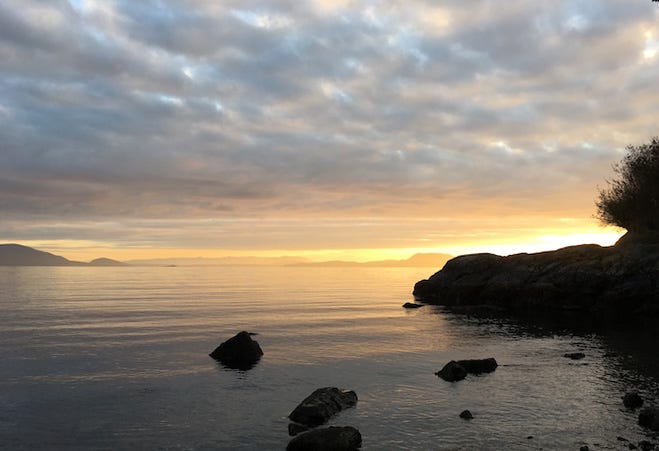Discover Nature :: Spirit — Kinship in a living world
Nature :: Spirit — Kinship in a living world

49 Episodes
Reverse
A path of listening, learned first in the yoga class of a beloved teacher in Boulder. For five years I attended her class, five years of book writing and coming to terms with my older brother's death. Wendy taught us how to move by listening—listening first to the body and breath, which is listening to the Earth. Here is a story of listening in Wendy's class. Get full access to Nature :: Spirit — Kinship in a living world at priscillastuckey.substack.com/subscribe
Why is there a price on land? When land is the living source of all our food—and of us—why do we think we can own it? We take a look at how private landownership got put into law in England in the 1600s to justify the landlords’ seizing of common lands. And how we might imagine our way to a different system. With inspiration for our imaginations from Dr. Lyla June Johnson (Diné) and Greek economist Yanis Varoufakis. And a first imaginary glimpse into an economy where land is free. Get full access to Nature :: Spirit — Kinship in a living world at priscillastuckey.substack.com/subscribe
On rivers, the secret river, and what one very early project from 1400 BCE to drain a lake can tell us about both. Plus, what losing spiritual connection to the irrepressible flow of life looks like: reaching for power and control over ourselves and others. How can we stay open to the life-giving currents, even those we don't understand? Get full access to Nature :: Spirit — Kinship in a living world at priscillastuckey.substack.com/subscribe
Looking up and opening the heart at the Solstice. We delve into the stories told by people through the ages about Venus and Orion and share some cool facts about red giants and blue giants. In a season for cultivating peace and goodwill, we turn to the stars to evoke wonder and awe and to cleanse the heart for a new year. Get full access to Nature :: Spirit — Kinship in a living world at priscillastuckey.substack.com/subscribe
In a recent university talk Robin Wall Kimmerer, author of Braiding Sweetgrass, reflected on how Indigenous understandings of what she called our “shared responsibility for Mother Earth” can help us heal our relationship with the land. “What does the Earth ask of us?” she asked. She suggested that Indigenous principles for relating with land might help guide Western science so that all can thrive. We reflect on three of these principles—responsibility, respect, and reciprocity—and we ask what might be possible if they informed Western knowing. And we end with Robin’s ideas about how to give back to the Earth. Get full access to Nature :: Spirit — Kinship in a living world at priscillastuckey.substack.com/subscribe
After my first book came out I hit a wall, feeling churned up inside. What was going on? When I turned inward to find out, I discovered company. I marched right over the sharp line that the Western world draws between matter and spirit and began to talk in spirit with an animal helper: a bear. Some thoughts on the limits that the matter-spirit split imposes on Western thinking, and how most Indigenous traditions regard reality as one unified whole, matter and spirit flowing together through every being and part of Earth. How talking with a bear in spirit nudged me toward larger definitions of myself and of the world. With assists today from Rumi and Vine Deloria Jr. Get full access to Nature :: Spirit — Kinship in a living world at priscillastuckey.substack.com/subscribe
Here on Maui we’re in crisis since the fire that destroyed Lahaina two weeks ago. But some of the same patterns of using and abusing water that contributed to this crisis are all too familiar from a history of colonizing people and land—including the land where I grew up in Ohio—that extends all the way back to ancient Mesopotamia. Today we look at a few of those historical connections and ask: When is diverting water harmful? What does it look like to care for land, or as we say here, mālama ʻāina? Get full access to Nature :: Spirit — Kinship in a living world at priscillastuckey.substack.com/subscribe
Getting tripped up in the early stages of writing my next book leads to some reflections on the process of writing the first two. More about how life led me to listening from the heart instead of following thoughtful plans and chapter outlines. On being open to the moment—in writing and life. Get full access to Nature :: Spirit — Kinship in a living world at priscillastuckey.substack.com/subscribe
Opening the gift of Robin Wall Kimmerer’s question: Why is the world so beautiful? How awe and wonder make us better people, as shown by the findings of psychology researchers into the science of happiness. But how can we feel awe at a time like this, when the Earth is wounded and so much life is endangered? An example from Maui’s degraded dryland forests, and how people are coming together to help the forests flourish again. Get full access to Nature :: Spirit — Kinship in a living world at priscillastuckey.substack.com/subscribe
How do we learn to trust the knowing that arises without words? Some thoughts on growing more sensitive to the messages we pick up through our many human senses. How to pay attention to our inner knowing, with ideas for simple ten-minute quiet times we can set aside each day to listen to the subtle whispers of the heart. But following the heart can be risky, so is it really worth it? Exploring the connection between how we treat the nature inside us—the heart-pulls—and how we treat the natural world. How respecting our inner knowing leads to cultivating more peaceful relations—with ourselves, with others, and with our more-than-human friends and kin on Earth. Get full access to Nature :: Spirit — Kinship in a living world at priscillastuckey.substack.com/subscribe
We have everything within us to make good decisions and follow a good path, and we can do this even when we’re young. It’s not what I learned among my own people, but it’s what Abraham Maslow learned among the Blackfoot early in his career. Today we listen to Indigenous voices, who talk about knowing from within, or “sovereignty of mind.” And we look at the long habit in Western history of defining knowledge instead as what is handed down from external authorities—an age-old habit that feeds the rise of authoritarianism today. What does it take to cultivate that quiet place inside, the place of discernment in the heart? How do we find sovereignty of mind? A moment from my own life when I took a step toward reuniting with my own heart. Get full access to Nature :: Spirit — Kinship in a living world at priscillastuckey.substack.com/subscribe
Putting the pieces together with a very late in life diagnosis, including growing out of self-doubt; masking reframed as empathy; living with the challenges and gifts of an autistic mind; and how being autistic can enhance a person’s life. All this and more from an interview that autistic art therapist Jackie Schuld did with me for her series on late-identified autistic people. Get full access to Nature :: Spirit — Kinship in a living world at priscillastuckey.substack.com/subscribe
Florida’s authoritarian laws are leading schools to empty their library shelves of possibly offending books. We dip into Karen Stenner’s definition of authoritarianism—being uncomfortable with differences—and find a tendency toward it stretching all the way back, in Western history, to the Roman Empire. But authoritarianism is fundamentally at odds with democracy, and with nature. For, as Darwin said, evolution brings forth “endless forms most beautiful.” Just as in the rest of nature, human societies thrive not by suppressing differences but by welcoming them. Get full access to Nature :: Spirit — Kinship in a living world at priscillastuckey.substack.com/subscribe
A mother doe once tried to attack my dog to save her fawns. She was single-minded about protecting her young. Not a hair of separation between mind and body. Are human beings this committed? Today we look at our response to COVID, and how kids are getting so sick right now. We’ve left the children unprotected, and we've done it through minimizing and denying some of the serious risks of the virus. What is denial? It’s a gap between mind and body—believing reality is different than it is. And we may be the only animals capable of it. So becoming more truthful is akin to becoming more like animals. Carl Jung called it “living your animal.” To him it meant becoming humble so that we can treat others fairly. We compare Jung’s view of animal morality with those of some animal behavior scientists. We compare it also with spiritual traditions, such as yoga and Zen, that try to help people bring body and mind into unity. And we touch on the practice of spirit journeys (or shamanic journeys) and how similar the practice is to what Jung called active imagination. When it comes to COVID, we need a lot more of "living our animal"—more single-minded purpose, more dedication to protecting our young, and more acting from a mind and body joined as one. Get full access to Nature :: Spirit — Kinship in a living world at priscillastuckey.substack.com/subscribe
With climate change scientist Kimberly Nicholas, and her book, Under the Sky We Make, as our guide, we talk today about how to cut carbon emissions at home. Ordinary Americans have more power than we think! Most Americans belong to the top 10 percent of income earners in the world—the ones burning most of the carbon so the ones who can stop most of it too. How do we stop burning fossil fuels? By, as Kim suggests, living close to “what we truly burn for.” Can we learn to say yes to our genuine needs and our most deeply held values—and only to those? What might it look like to choose “what we truly burn for” when it comes to climate? From Kim we learn three choices that will reduce emissions the fastest: going plane free, car free, and meat free. So when I applied my deepest values and needs to these three climate actions, what did I discover? For one thing, that contemplating changes can be scary! But as Kim writes, we don’t have to be perfect, we just have to be brave. So here’s to being brave together and cutting our own household emissions as fast as we can. And maybe, just maybe, life gets easier when we do. Get full access to Nature :: Spirit — Kinship in a living world at priscillastuckey.substack.com/subscribe
We take a cue from the Aymara people of the Andes, who experience the past as in front of us, not behind us.So today we face the past: first the recent past, in June, of devastating Supreme Court decisions and horrifying Congressional testimonies about the former president’s attempted coup.The events are related, and we dip into the deep past to understand their connections. We explore the first law code written down that survives today, the Code of Ur-Nammu in 2100 BCE, and how it protected status, wealth, and the power of men over women. Through routes both direct and indirect, it became the “cradle” of modern law. So those who are trying to keep white men at the apex of power are inspired by a vision of society going back, not just fifty years, but five thousand.We explore how to make social inequality strange—how to challenge lingering ideas in our own minds that wealth should bring status, that owners get to decide, and that authority "naturally" looks white or male.A different social order IS possible, and we look to the Aymara again for an example of a society that rejects hierarchies. To the Aymara, hierarchy is the opposite of affection. They choose affection because they say it's the only way that people can thrive and the Earth can regenerate. Get full access to Nature :: Spirit — Kinship in a living world at priscillastuckey.substack.com/subscribe
So last year, in my mid-sixties, I discovered that I’m autistic. But what took me by surprise wasn’t the diagnosis, it was the overwhelming feeling of relief. Why so much relief? We talk about that today—how I, like many people, held an extremely narrow view of autism; how autism consists not of one spectrum but of eight or ten different ones; and how each autistic person is their own colorful configuration of things in life that may be harder for them and things that may be easier. I muse on how being autistic (without knowing it) led me early in life toward meditation and toward connecting with nature, and how it laid the foundation for working today in nature spirituality. We talk about some common misconceptions of autism, and I reflect on my work life as an autistic person. We also review what slime mold taught ecologists about loners and outliers. Finally, we celebrate the radiance of an Earth that, in Darwin’s elegant words, has brought forth “endless forms most beautiful and most wonderful.” Get full access to Nature :: Spirit — Kinship in a living world at priscillastuckey.substack.com/subscribe
Did I really get kissed by a fox? Yes, I really did—many times!—by Rudy the red fox, who lived at the wildlife rehab center where I was volunteering. Rudy's story opens chapter 4 of my first book, Kissed by a Fox: And Other Stories of Friendship in Nature, and this recording is taken from the audiobook version now in production. I can't wait to make the audiobook available to listeners everywhere! Get full access to Nature :: Spirit — Kinship in a living world at priscillastuckey.substack.com/subscribe
The everyday miracle of the sun rising into our sky and powering our Earth can become energy for our hearts and minds too, in the meditative practice of looking toward the dawn. What does it mean to look toward the dawn? It means lifting our eyes, metaphorically, from what’s right at our feet and looking toward new developments coming on the horizon, then aligning our efforts with their life-giving power. How do we tell which developments are truly life-giving? We use some examples cited in the recent IPCC 2022 report on climate change to discern things that are truly new from things that grow out of old or destructive mindsets. Black poet Audre Lorde provides inspiration with her sentence: “The master’s tools will never dismantle the master’s house.” And because the image of looking toward the dawn arose during a spirit journey, we talk a little about how a spirit journey works and how to integrate the images that arise during a spirit journey into everyday life. Get full access to Nature :: Spirit — Kinship in a living world at priscillastuckey.substack.com/subscribe
How does a person start practicing nature spirituality? Today we look at what nature spirituality is and how to begin on this path—with two simple (but maybe not easy!) practices: opening the heart and widening the perception. We outline differences between the mind and the heart and talk about why opening the heart may feel vulnerable or strange at first—because modern Western public life places the mind first. We show how serving the mind leads to personal and cultural imbalance because the mind allows only a narrow view, while the heart sees a more spacious and compassionate picture. So it is crucial, especially at this moment in time, to place the mind in service to the heart. Is it possible for people, individually and collectively, to live from the heart? Yes! We listen to the words of Indigenous teachers from both Africa and Alaska who talk about how they learned to live from the heart and how following the heart leads to wiser perception and more ethical living. Get full access to Nature :: Spirit — Kinship in a living world at priscillastuckey.substack.com/subscribe





